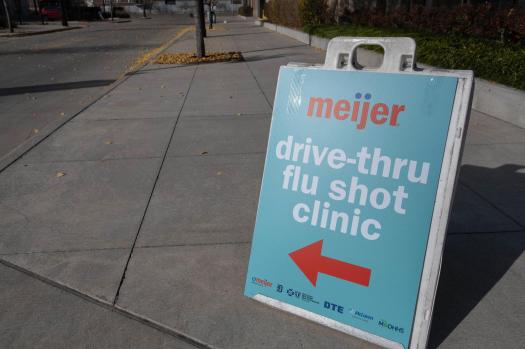Written by KFF Health News’ Madison Czopek
The fall must-do list can seem to be getting longer and longer for parents of school-age children. Purchase school materials. Complete countless school forms. Set aside time for parent-teacher conferences. Are the children’s tennis shoes still in good fit?
Related Articles
-
Considering a life change? Brace for higher ACA costs
-
A fear pandemic : Immigration raids push patients into telehealth
-
Despite federal shift, state health officials encourage COVID vaccines for pregnant women
-
Breaking down why Medicare Part D premiums are likely to go up
-
Moving to a new home or school can stress kids out. How to make it more manageable
You may recall receiving a flu vaccination at some point. Obtain a flu vaccination. Obtain their flu vaccines. Or ought you to? Are you able to? Does that still exist?
It’s reasonable to question where the 2025–2026 flu vaccine stands in the midst of political discourse surrounding vaccines and the government agencies that regulate them.
In a nutshell: The flu vaccination is still available. Additionally, experts we spoke with advised getting vaccinated against the flu this year.
Here are a few responses to frequently asked questions:
I’ve heard that the Trump administration may be altering its vaccine guidelines. Does the flu vaccine fall under that category?
The Centers for Disease Control and Prevention continue to recommend that everyone aged 6 months and older receive an annual flu vaccination, with no significant modifications to this advice.
This implies that it will be covered by the majority of insurance and will soon be readily accessible.
Despite his anti-vaccine stance, Health and Human Services Secretary Robert F. Kennedy Jr. concurred that the majority of individuals should receive the flu shot. Kennedy substituted his own members for the board that advises the federal government on vaccine policy, and he acted on their recommendation.
Although the preservative thimerosal had previously been eliminated from the majority of vaccines, including the majority of flu shots, the panel decided against recommending multidose flu injections that included it.
Who is not a good candidate for the flu shot?
Physicians agreed that there are always exceptions to general recommendations. People who have severe allergies to flu vaccine ingredients, for instance, shouldn’t receive those shots.
For individualized advice, you should talk to your doctor about your health condition.
Does the flu shot this season differ from the one last season?
Indeed. Although not significant, the flu vaccine was modified for the approaching flu season. This year’s vaccine, which is a three-component or trivalent vaccination, is similar to previous year’s in that it offers protection against three influenza viruses: two influenza A viruses and one influenza B virus.
According to Ryan Maves, a Wake Forest University medical professor and member of the Infectious Diseases Society of America, this season’s vaccine was modified to target a particular strain of the influenza A/H3N2 virus that is anticipated to be prevalent this season. These adjustments are in line with the World Health Organization’s recommendations.
What time of year is ideal for vaccination?
October, early November, or September. This guarantees that your protection doesn’t decrease before the flu season finishes and gives your body time to build up its protective antibodies when it starts.
“You want to make sure that you’re vaccinated and that your protection is still strong through February and into March because influenza infection usually peaks in the U.S. in February,” said William Schaffner, an infectious diseases professor at Vanderbilt University Medical Center.
Is the flu shot for this season guaranteed to protect against the strain of influenza that is currently circulating?
Ensure complete protection? No.
lower the chance of dying? Indeed.
According to Schaffner, flu shots are the most effective way to shield us against the most serious effects of influenza, much like the COVID-19 vaccine. This indicates that the flu shot works best at preventing hospitalization or intensive care unitization and death.
Benjamin Lee, an associate professor at the University of Vermont Larner College of Medicine and a pediatric infectious diseases physician at the University of Vermont Children’s Hospital, stated that while a flu vaccine may not provide complete protection against the flu, not getting one simply means you won’t have any protection at all.
Will it be easy to get the flu shot this year?
Everything suggests that the answer is yes.
The FDA anticipated a sufficient and varied supply of vaccines after issuing its formula recommendations to manufacturers on March 13. Flu shots should be available shortly, usually starting in September, for those who give them, according to Flor Mu oz, an associate professor of pediatrics and infectious diseases at Baylor College of Medicine.
I was informed by Kennedy that $500 million in funding for vaccine development had been discontinued. Will this have an impact on upcoming flu shots?
Kennedy declared that funds for the research of mRNA vaccines would no longer be available. Although there aren’t any approved mRNA flu vaccinations at the moment, some businesses have been investigating mRNA flu and COVID injection combinations.
Experts, however, stated that uncertainty is growing as a result of federal government changes, including funding cuts, purges by the vaccine committee, and departures from established protocols.
KFF Health News, 2025. Tribune Content Agency, LLC is the distributor.












